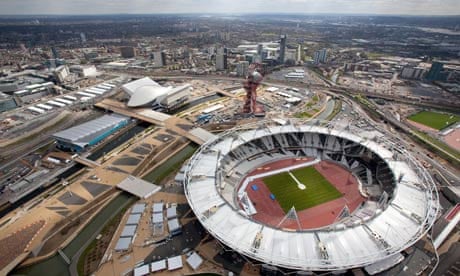A parliamentary inquiry into the blacklisting of workers by major construction firms over the past 30 years has heard claims that the practice has continued during the building of the Olympic park.
Dave Smith, a former engineer persecuted for years over his political views and work as a union shop steward, told MPs there had been a recent case where two men were fired on the east London site because of their political views.
He told the inquiry there was considerable anecdotal evidence that workers were still being monitored and refused work because of their political views, adding: "On the Olympics site, there was a dispute about two workers who were dismissed because of blacklisting."
It is believed Smith was referring to the case of two workers sacked during work building the Olympics media centre. Their employer, not named during the evidence, denies the allegation and said the two men had withdrawn claims made against the company at an employment tribunal.
The parliamentary inquiry has been launched following the revelation in the Observer earlier this year of collusion between the police and construction firms to blacklist workers. This newspaper revealed that the Information Commissioner's Office (ICO) had evidence that the police or security services supplied information to a blacklist containing the names of 3,200 people held by the Consulting Association, a clandestine company funded by major names in the construction industry.
The Scottish affairs select committee in charge of the inquiry, chaired by Labour MP Ian Davidson, is now taking evidence on the issue and is expected to demand to hear from major companies, including Sir Robert McAlpine and Balfour Beatty. Senior police officers could also be called to give evidence.
Smith, a 46-year-old former engineer who had a 36-page file against his name and was victimised repeatedly for highlighting safety hazards on sites, including the presence of asbestos, spoke to the inquiry on Tuesday.
He told the cross-party committee: "I was a qualified engineer in the middle of the building boom, and my kids were on milk tokens." Smith added: "I think it is almost certain that it is still going on.
"Throughout my working life, the employers in the construction industry denied that there was such a thing as a blacklist. Whenever the trade unions raised it with them, they said it was complete paranoia and there was never a blacklist."
The scandal will be thrown open to further public exposure in the coming months as a class action by 100 claimants against at least 39 companies is set to be pursued in the high court by Hugh Tomlinson QC, currently counsel for several of the phone-hacking claimants.
The existence of the blacklist was first exposed in 2009, when investigators from the ICO raided an office in Droitwich, Worcestershire.
The investigators uncovered an extensive database that was used by construction firms to vet workers they deemed to be trade unionists and troublesome. More than 40 construction firms, including Balfour Beatty and Sir Robert McAlpine, had been funding the database, which recorded workers' trade union activities and conduct at work.
At Smith's recent tribunal, Carillion admitted that two of its subsidiaries covertly supplied information to the database to "penalise" Smith for being a trade unionist, even though he had "reasonably brought health and safety concerns to their attention". Smith lost his claim for £175,000 in lost income because he worked through an agency and was not directly employed by Carillion.
